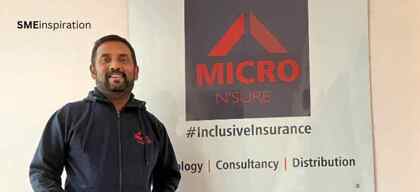Onward & upward: 5 tips for women leaders to build executive presence

Women Entrepreneurship
200 week ago — 5 min read
Anyone who is currently in a leadership role or aspires for one knows that executive presence will always be a leadership skill that quickly demonstrates to others your ability to get the job done, a critical expectation from a leader, regardless of the period in history. Your technical and intellectual skills are irrelevant if you are not viewed as a leader. As you can see, this difficult to pinpoint, yet easy to spot skill is equally tough to define. It’s not directly connected with business results and may not reflect your true capability or qualities — it’s about how others perceive you as a leader.
Executive presence is leadership skill that quickly demonstrates to others your ability to get the job done, a critical expectation from a leader, regardless of the period in history.
Going a step further, defining executive presence for women leaders is tougher as you have to layer it with societal prejudices and biases. For example, first, we were told to ‘lean in’ and after a backlash, the men were told to ‘lean out’. Several studies have consistently shown that a large percentage of women at the workplace prefer to stay behind the scenes as they feel that visibility was either attention-seeking behavior or was seen as too aggressive. Speaking up and being visible at a meeting may lead to handling conflicts or not be seen as ‘nice’ and they preferred keeping a low profile instead.
As a woman professional, owing to the lack of diversity at the middle and senior levels in corporate India, very often you will walk into a business meeting and realise that you are the only woman in the room. You will notice that some men will take charge of the meeting confidently, at times dominating the conversation, and may completely ignore you. At this stage, you can muster the courage to contribute by depending on your pre-meeting research and speaking up if you disagree. The trick is to be assertive without being perceived as argumentative. The key is appropriate language – learn to get your point across impactfully, adding value to the meeting.
Tips for women leaders
1. Believe in yourself: Confidence is the key. It’s important to be confident in your own ability and display it when making decisions; all the empowerment comes to naught if a leader is unable to make a decision.
2. Do the right thing: Ask for ideas, collect data, keep communication channels open and take a calculated decision.
3. Don’t take failure personally: All leaders fail at some point and many will have to change their course of action; that’s business but don’t let it hold you back from moving forward.
4. Create an impactful first impression
5. Build a strong online presence and use it to reach out to network with professionals across the world.
Shital Kakkar Mehra is India’s leading Executive Presence Coach for CEOs. With over 20 years of experience, Shital has personally trained over 45,000 professionals across Asia, including numerous CEO’s from leading multi-national and progressive domestic companies. Shital is an acclaimed public speaker and best-selling author. Her first book, Business Etiquette: A Guide for the Indian Professional (Harper Collins) has sold over 50,000 copies and has been translated into several regional Indian languages. Her second book, “Executive Presence: The POISE formula for Leadership” was published by Harper Collins India in July 2020.
Shital is an active philanthropist and is the Co-Founder of Katalyst, an NGO for underprivileged girls. Also, she serves on the board of Third Sector Partners (TSP), a premier Executive Search firm that enhances leadership caliber in the socio-developmental sector.
To explore business opportunities, link with me by clicking on the 'Connect' button on my eBiz Card.
Image source: shutterstock.com
Disclaimer: The views and opinions expressed in this article are those of the author and do not necessarily reflect the views, official policy or position of GlobalLinker
Posted by
Shital Kakkar MehraBusiness Etiquette & Cross-cultural expert; Business Communciation Coach for CXOs
View Shital 's profile
SME Inspirations
Other articles written by Shital Mehra
Social etiquette at work: Some do’s & don’ts
288 week ago
Top 7 mistakes you can make at a business lunch
341 week ago
Most read this week
Trending
Ecommerce 2 days ago
















Comments
Please login or Register to join the discussion